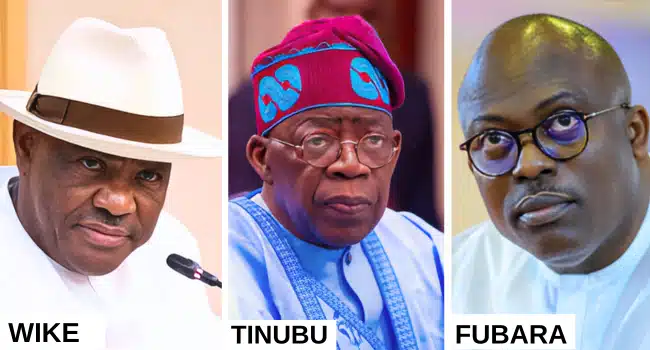Place your adverts here on InfoDig @ low rates; banner ads, sponsored links and guest articles etc. Contact us
An incident on 17th October highlighted the disconnect between the Federal Government and majority of Nigerians. It happened during a panel session organised by the World Bank Nigeria to discuss the outcomes of the bank’s report on the Nigeria Development Update Report, entitled “Staying the Course: Progress Amid Pressing Challenges.”
Among the panellists were the Governor of Bauchi State, Bala Muhammed, the Minister of Finance and Coordinating Minister of the Economy, Wale Edun, and the governor of the Central Bank of Nigeria, Olayemi Cardoso.
At the launch of the report, the World Bank country director for Nigeria, Ndiame Diop, had commended the FG for the courage to initiate and implement removal of fuel subsidies, floating the Naira, and adjusting electricity tariffs, amongst other measures.
These fiscal and monetary policies have inevitably brought economic hardship on majority of the citizens.
But Diop said, “Nigeria took the bold and courageous move to undertake difficult but critical reforms. This is against an already fragile economic position, high food and transport inflation, and other heightened uncertainties.
“If these reforms had not been implemented, Nigeria would have fallen into a serious fiscal crisis that would have made it difficult for the government to meet its obligations to citizens.”
The World Bank reported that oil sector output has stabilised while service activities have been robust during the year. It also claimed the FG’s fiscal deficit has narrowed to 4.4 per cent of GDP in the first half of 2024 from 6.2 per cent in the first half of 2023, helping to mitigate debt-related risks.
Foreign exchange reserves had also risen from $32.9bn at the end of 2023 to more than $38.8bn by mid-October 2024.
During the panel discussion, Governor Muhammed, Edun and Cardoso had a back and forth on whether the government’s reforms are working or not. To Governor Muhammed, the reforms are not working and the proof is the economic hardship Nigerians are currently facing.
He said, “I want to say, with humility, that there is a lot of pain and hardship beyond the sub-nationals. We didn’t bring these policies. The forthcoming revenues are insufficient to address the infrastructure costs and develop or improve livelihoods.
“We are at risk of being lynched. They stay in Abuja and talk as if the reforms are working. This is part of something else.”
He described claims that the reforms were yielding fruits as “academic” and urged the government to “return to the basics.”
But his position was quickly dismissed by both Edun and Cardoso who insisted that the reforms were necessary and that the pain would be temporary. Both men insisted that the reforms would free up more revenue for the government and restore investors’ confidence in the economy.
Reacting to revenue now coming to the state governments, the Bauchi governor said, “But what is the volume of revenue we are receiving? Can we sustain it (minimum wage)? And if we do, do we have anything left for infrastructure? What about power? The tariffs are beyond the reach of the common person. We are living with these people.”
The exchanges at the panel were ample evidence that whatever good thing is going on with the reforms of the President Bola Tinubu Administration, the ordinary people in the country are not feeling it. Infact, the talk on the streets is that the Tinubu government is damaging the country rather rather than repairing it.
While we do not agree with those like Governor Muhammed, who want the ongoing reforms to be reversed, we urge the Tinubu administration to give the reforms a human face so that it can make the people key into the government’s agenda.
Even the World Bank has advised the FG that while moving forward with the reforms, it must urgently address structural issues to combat inflation and scale up support for the poorest households to cope with losses in purchasing power and hardships.
The International Monetary Fund has put it more bluntly. Acknowledging the impact of the reforms on everyday Nigerians, Abebe Selassie, director of IMF’s African Department, said last Friday at a forum in Washington DC that the FG’s effort to alleviate the suffering of the people were too slow.
He said, “A better job can be done by rolling out social protection, particularly for the most vulnerable.” This will shield the people from the adverse effects of the reforms.
So far, we have not seen this happen.















